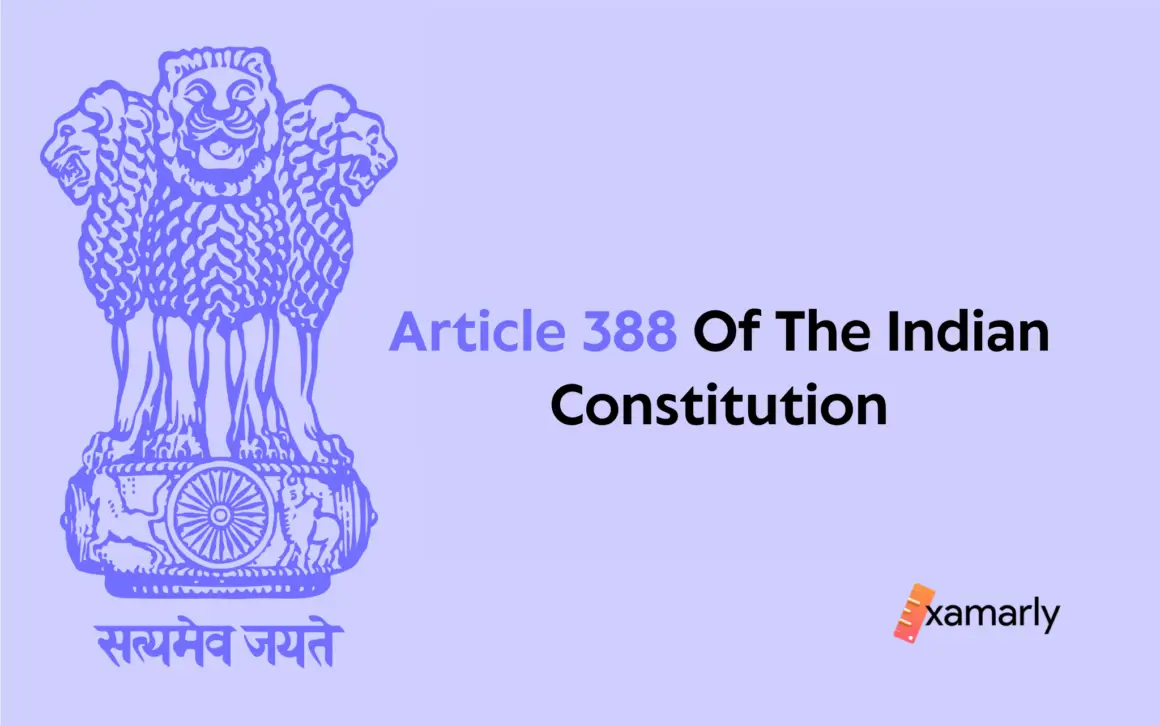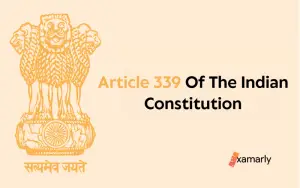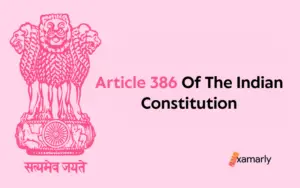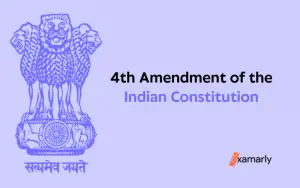Article 388 of the Indian Constitution stated the provisions of filling casually vacant posts in the Indian legislature & came into force on 26 November 1949.
Let us dive deep to get a better understanding of Article 388 of the Indian Constitution, its omission & the aftermath.
- Article 388 Of The Indian Constitution – In Detail
- Omission Of Article 388 Of The Indian Constitution – Aftermath
- Summary
- FAQs Related To Article 388 Of The Indian Constitution
- What is a casual vacancy?
- How are casual vacancies in the Lok Sabha and Rajya Sabha filled?
- How are casual vacancies in the State Legislative Assembly and State Legislative Council filled?
- What happens if a vacancy occurs within a year before the end of the term of the house?
- How recent Representation of the People (Amendment) Act 2021 affected the filling of casual vacancies?
Article 388 Of The Indian Constitution – In Detail
Article 388 of the Indian Constitution laid down regulations for the filling of casually vacant positions in the provisional Parliament & the provisional State Legislatures.
It is important to have provision for filling the casual vacancies as it helps ensure that the legislative bodies have a full complement of representatives at all times and it’s a way of maintaining continuity of representation and governance.
Omission Of Article 388 Of The Indian Constitution – Aftermath
The omission of Article 388 of the Indian Constitution was done by the Constitution (Seventh Amendment) Act 1956.
After this, the casual vacancies in the provisional Parliament (i.e., the Lok Sabha and the Rajya Sabha), and provisional Legislatures of the States are filled through a process of by-elections.
According to the Representation of the People Act, 1951, a casual vacancy in the Lok Sabha or the Rajya Sabha occurs when a member is elected to both houses of the parliament;
- resigns,
- dies, or is
- disqualified.
In such cases, a by-election must be held within six months from the date of the vacancy.
The by-election is held in the same manner as a general election, with the winner of the by-election being elected for the remainder of the term of the vacating member.
For the State Legislative Assembly and the State Legislative Council, the process is similar.
The winning candidate will hold office for the rest of the term of the member who caused the vacancy.
It’s important to note that if the vacancy occurs within a year before the end of the term of the house, the Election commission doesn’t conduct the by-election to fill the vacancy and the seat will remain vacant till the dissolution of the house.
It’s also worth mentioning that the recent Representation of the People (Amendment) Act 2021, passed by the Indian Parliament has introduced provision for simultaneous bye-elections if a vacancy of either house of Parliament or State Legislature occurs within a year from the date on which the term of the member would have normally ended.
Summary
Article 388 of the Indian Constitution laid out provisions for the filling of casually vacant positions in the Parliament & the State Legislatures.
It was omitted from the Constitution by the Constitution (Seventh Amendment) Act 1956.
You Might Also Like To Read: Article 380 Of The Indian Constitution
FAQs Related To Article 388 Of The Indian Constitution
What is a casual vacancy?
A casual vacancy refers to a vacancy that occurs in the provisional Parliament or the provisional Legislatures of the States due to death, resignation, disqualification, or any other reason of a member.
How are casual vacancies in the Lok Sabha and Rajya Sabha filled?
Casual vacancies in the Lok Sabha and Rajya Sabha are filled through a process of by-elections. The by-election is held in the same manner as a general election, with the winner of the by-election being elected for the remainder of the term of the vacating member.
How are casual vacancies in the State Legislative Assembly and State Legislative Council filled?
Casual vacancies in the State Legislative Assembly and State Legislative Council are filled through a process of by-elections.
The winning candidate will hold office for the rest of the term of the member who caused the vacancy.
What happens if a vacancy occurs within a year before the end of the term of the house?
If the vacancy occurs within a year before the end of the term of the house, the Election Commission doesn’t conduct the by-election to fill the vacancy and the seat will remain vacant till the dissolution of the house.
How recent Representation of the People (Amendment) Act 2021 affected the filling of casual vacancies?
The Representation of the People (Amendment) Act 2021 has introduced provisions for simultaneous by-elections if a vacancy caused due to death, disqualification or resignation of member of either house of parliament or state legislature occurs within a year from the date on which the term of the member would have normally ended.






